Childhood Memories by Mania (Karp) Weitz
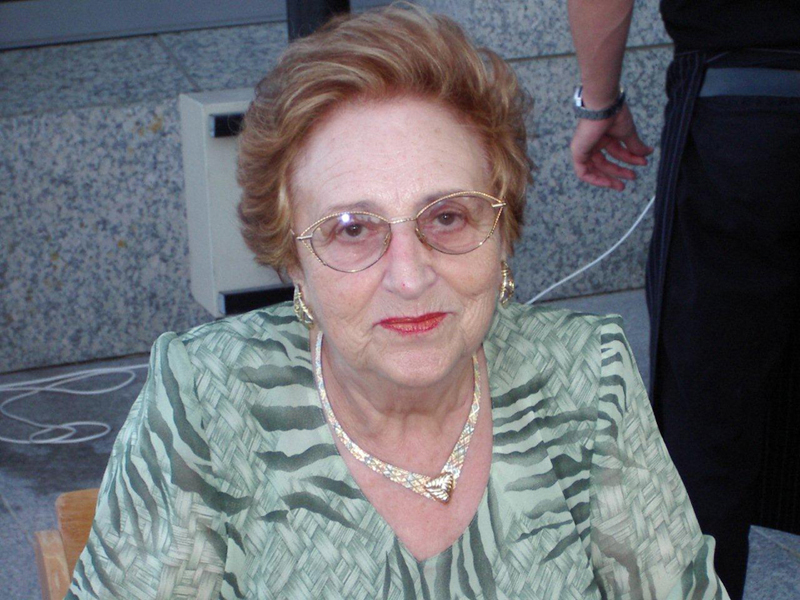 I was born on 18 August 1932 in the house of my grandfather and grandmother, in Zolkiew,
the youngest daughter of the Karp family. My father, Pinhas Karp, came from the town of
Józefów, Poland, and my mother, Reize (Shoshana) of the Reizfeld family, came from the
town of Zolkiew, near the city of Lvov, in Ukraine. My parents built their home in
Józefów.
I was born on 18 August 1932 in the house of my grandfather and grandmother, in Zolkiew,
the youngest daughter of the Karp family. My father, Pinhas Karp, came from the town of
Józefów, Poland, and my mother, Reize (Shoshana) of the Reizfeld family, came from the
town of Zolkiew, near the city of Lvov, in Ukraine. My parents built their home in
Józefów.
The family was very special because it was built according to the design of the architect whom my mother brought especially from Zolkiew, the city where she was born. They even imported the building materials from there and created a very special building.
Despite the great distance between these two cities, we traveled frequently to visit grandfather and grandmother. My father was a lumber merchant and my mother, at the same time as she raised her children, was deeply involved in community life and was active in charity work and helping to arrange weddings for poor couples. Grandfather Shimon Reizfeld had an oil and grain factory and Grandmother Leah assisted him in overseeing the workers.
We felt the first buds of anti-Semitism well before the outbreak of the war. I remember that when I was still a small girl people threw stones at our house and smashed the windows. The house was damaged and the feeling was especially bad when we discovered that those who had thrown the stones were our neighbors, with whom we had been on good terms.
More or less at the start of 1939, Józefów was bombed and we fled from the house to the trenches that had been dug on the outskirts of the city.
Twenty-four hours later, we returned to our home and mother, who had supplied herself in advance with basic products such as flour, millet, potatoes and onions that we grew in the yard of our house, cooked for the refugees who had fled from the towns the Germans had already entered, and gave them shelter in our home. This was all before the farmers’ wagons that grandfather had sent from Zolkiew so that we could get away from the Germans, who were advancing in our direction. We loaded some movable furniture and set out for Zolkiew, where we would be with the rest of our family. Grandfather, who had been a prisoner of the Russians during World War I and been put to work sweeping streets, met Trotsky and Stalin who, for reasons they never revealed, liked him and asked how they could help him. He told them that the only thing he wanted was to return to his wife and six children. They helped him to realize this wish. Because of this, he knew the way the Russians thought and operated and took a decision that, in retrospect, proved to be calamitous: to transfer the management of the oil factory to the workers. A ceremony was held, at which it was announced that grandfather was giving the factory to the city government and that it now actually belongs to the people. About a week later, he was arrested on the charge of spying and sent to “Brygidki” Prison in Lvov. A few days later, representatives of the Youth Party, the “Komsoml’tze”, came with Russian soldiers and brought us to the train station and we were shipped in cattle cars to Russian Kazakhstan, to a kolkhoz called “Atapieka” where we remained for two years.
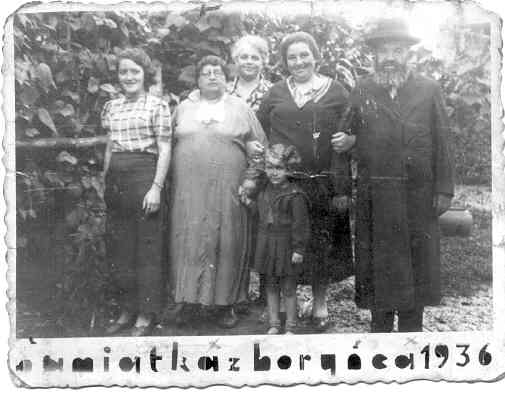
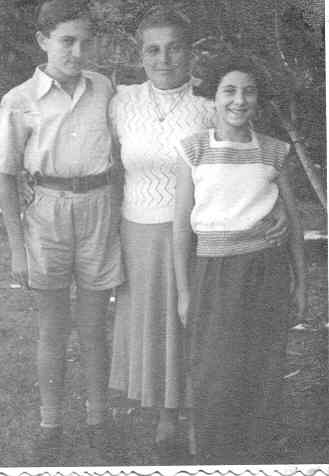 Father was the foreman of a group of workers who made building blocks out of mud and straw
that were used to small buildings called “Lipienki”. Mother remained at home and we children
went to the forest to pick berries and gather mushrooms. We caught fish in the river for food.
Father built a kind of pool out of wire netting that the minnows swam through, and in it we
fed and raised them. During the time we were in the kolkhoz the people were sent out to work
in the kolkhoz and on one occasion everybody returned at the end of the workday, including
my two sisters, but my brother didn’t come back. Two days later, he was found sleeping in a
group of rocks. When we asked him what had happened he told us that he had lost his way, and
then an old woman appeared who was leading an old man with a thick beard toward the grave of
Rachel Imenu, our biblical ancestor.
Father was the foreman of a group of workers who made building blocks out of mud and straw
that were used to small buildings called “Lipienki”. Mother remained at home and we children
went to the forest to pick berries and gather mushrooms. We caught fish in the river for food.
Father built a kind of pool out of wire netting that the minnows swam through, and in it we
fed and raised them. During the time we were in the kolkhoz the people were sent out to work
in the kolkhoz and on one occasion everybody returned at the end of the workday, including
my two sisters, but my brother didn’t come back. Two days later, he was found sleeping in a
group of rocks. When we asked him what had happened he told us that he had lost his way, and
then an old woman appeared who was leading an old man with a thick beard toward the grave of
Rachel Imenu, our biblical ancestor.
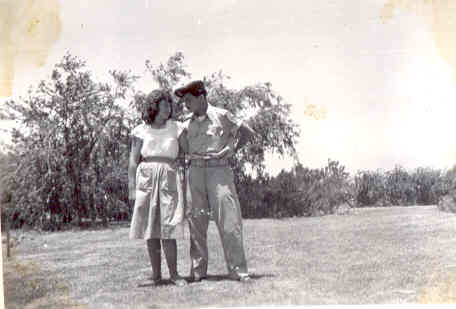
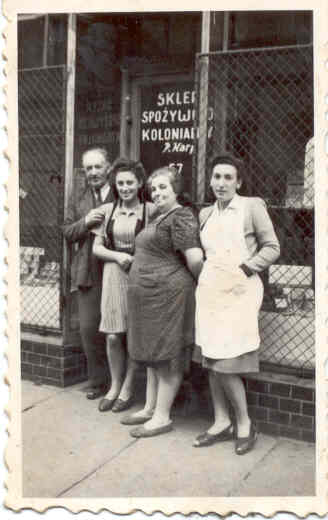 When I think back on it today, I realize that he had a vision of his own death, and that there
were other signs of this, because at the very time that he was absent from the house a glass
shattered in our house and the clock stood still.
When I think back on it today, I realize that he had a vision of his own death, and that there
were other signs of this, because at the very time that he was absent from the house a glass
shattered in our house and the clock stood still.
During the time we were in the kolkhoz I became ill with malaria and was sent to the hospital in a very special “ambulance” – a cart pulled by two oxen. I was hospitalized in an isolation ward for six weeks.
Occasionally, mother came to visit me and I saw her through a glass partition. When I was well again, I returned to the kolkhoz.
My oldest brother, Wilek, went with father to look for work in the town of Aktubinsk. He found work at the flourmill and thanks to this we were permitted to move to the town. Father found an apartment, where we lived until the war was over. I didn’t see my brother any more, because while we were still on our way to the city sitting on an ox-drawn wagon, with grandmother holding a pitcher full of milk in her hand, the milk rose above the rim of the pitcher but didn’t overflow it. Instead, it settled back down into the pitcher. As it turned out, at precisely that moment my brother’s clothing got caught between the millstones and he was crushed to death.
We three sisters remained and led conventional lives there. Father was busy with his trade and my big sister, Frieda, worked as a seamstress in a big clothing factory. Clara, the middle sister, was a manicurist who cared for the hands of the town’s women and I, the youngest, went to school.
Following the Sikorski Declaration, which signaled the signing of a peace treaty between Russia and Poland, we were given permission to travel to the Polish province of Slezin, where we lived in the city of Liegnitz. Here, too, the family was involved with commerce. Following the Keltz (Kielce) pogrom, our extended family decided to send us, the adolescents, my brother Wilek, my cousins Alex and his sister Zoshka and me, to Palestine through the Gordonia youth movement.
The road to Palestine, which was long and filled with obstacles, was covered partly on foot in total silence (not easy for little children) and partly in trucks, through Czechoslovakia and Austria to Germany. We remained in Germany for a while at Berchtesgaden and then for another period at Pirten. It is important to mention that during the war Pirten had been a “rest home for racially pure Aryan women whose destiny was the “eugenic improvement and perpetuation of the Aryan race,” by giving birth to “improved” Aryan children. During my time there I was invited on several occasions to sing for representatives of UNWRA, who had come to reinforce all of the displaced persons camps. In this way I realized a childhood dream of mine, to sing. After some time, mother sent a family friend to bring me back to Poland and in 1950 we came to Israel and settled in Netanya. In Israel, too, my parents were involved with commerce.
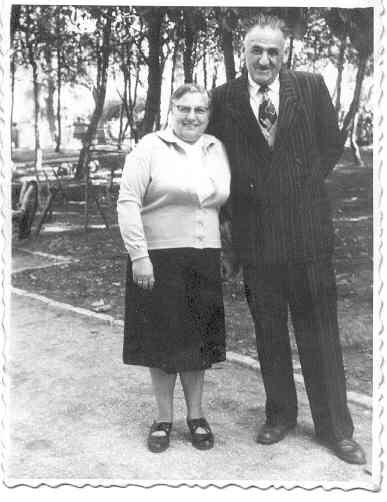
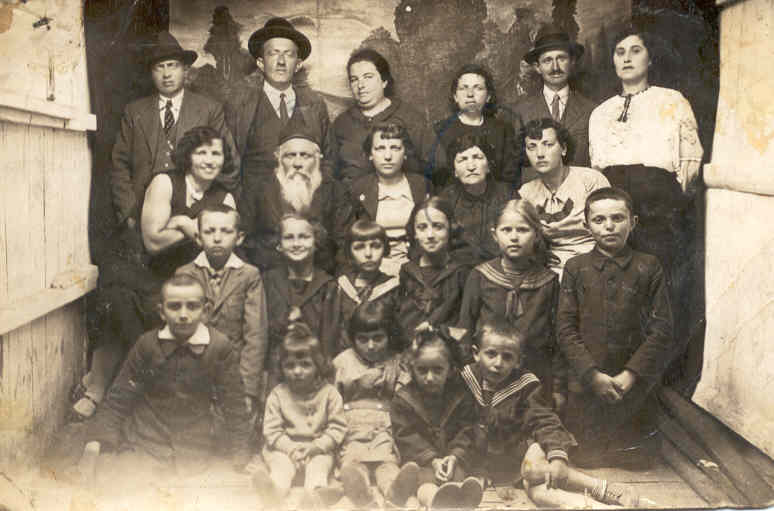 During my first years in Israel I worked as a guide for young new immigrants sent here by the
Jewish Agency for Palestine. For the past 40 years, I work as a trainer in an occupational
rehabilitation institution for people with special needs.
During my first years in Israel I worked as a guide for young new immigrants sent here by the
Jewish Agency for Palestine. For the past 40 years, I work as a trainer in an occupational
rehabilitation institution for people with special needs.
In 1952, I married Muniu of the Weitz family and began a family of my own. I gave birth to two daughters and have 5 grandchildren and 5 great-grandchildren. My daughters were raised on the phrase “when we lived in Poland,” which gave expression to my longing for the land of my childhood.
In 2007, my daughters, Chana and Ariella, joined others from our city on a roots trip to Poland and Ukraine. On that trip we visited the home of my grandfather and grandmother, where I was born, an especially emotional day in my life.
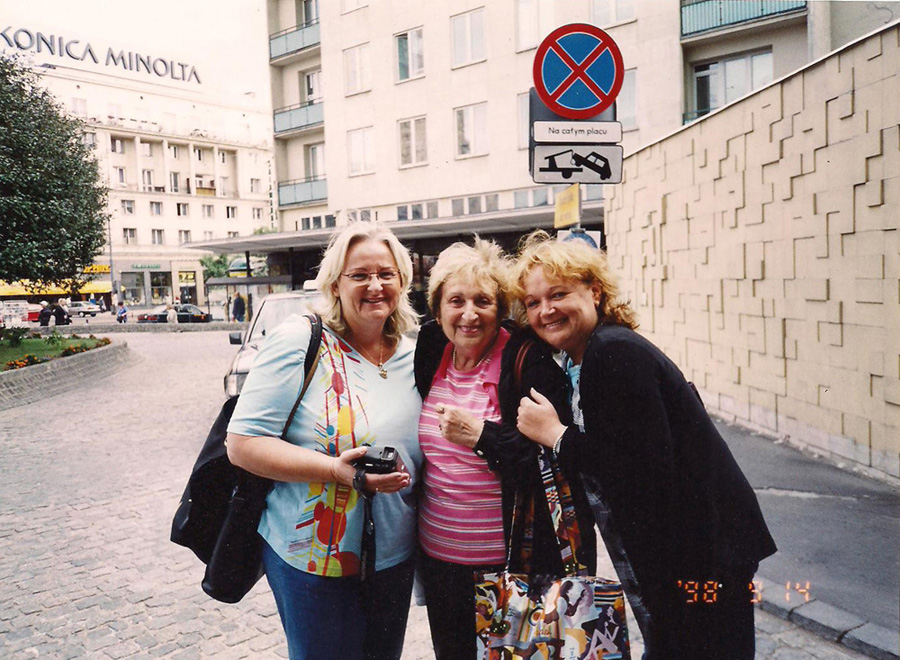 To help my daughters understand why I felt such longing we also took a trip in 2009 to the
region of Krakow and the resort town of Zakopane.
To help my daughters understand why I felt such longing we also took a trip in 2009 to the
region of Krakow and the resort town of Zakopane.
Throughout my adult life I have enjoyed pleasant experiences in various cycles, both social and familial. As I mentioned above, I am still working, traveling the world and taking pride in the family with which I have been blessed: my husband, daughters, grandchildren and great- grandchildren.